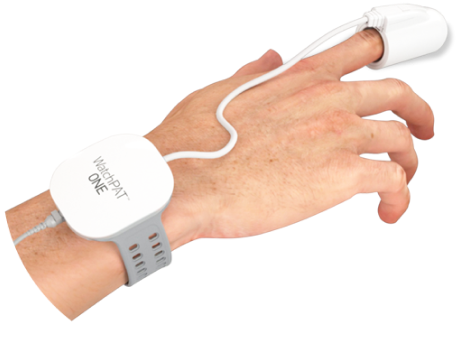
Apnea as a severe form of sleep disorders is characterized by the constant interruption of the breathing process during a night’s sleep. If they are not controlled, then they are likely to cause severe health risks including heart diseases, hypertension, diabetes and reduction in mental capacity. The challenge in the management of sleep apnea is, therefore, likely to be anchored on the diagnosis. That’s why it is essential to get a proper diagnosis of sleep apnea to ensure the further treatment and general health condition improvement.
1. Tailored Treatment Plans
A proper diagnosis of sleep apnea enables a doctor to develop a treatment plan that should cater for the individual’s needs. Sleep apnea is not a simple monolithic disorder: its severity and manifestations differ, and so can the causes of the disease in certain patients. This is due to the fact that apnoea can be categorized as obstructive, central, or mixed and can also be diagnosed by the severity with which it is presented coupled with the various known causes. Such precise knowledge of the disease process assists in identification of the specific and optimal therapeutic approaches including CPAP treatment, behavioral modifications or surgical procedures. Failure to make a proper diagnosis may mean that treatment administered may not be as efficient, or may not suit the needs of that specific patient at all.
2. Prevention of Health Complications
It also has been linked with other diseases such as cardiovascular diseases, stroke, hypertension and diabetes. These complications if not prevented or eased can be a huge set back when their causes are not diagnosed early. Having chronic conditions diagnosed early helps in preventing or reducing such complications. When sleep apnea is diagnosed, the patient’s condition is closely followed by the health care givers and preventive measures are put in place to alleviate or manage the effects of such co-morbid conditions. It is crucial to diagnose the sleep apnea as soon as possible and begin the treatment since it has great negative effects on a patient’s health in the future.
3. Improved Quality of Life
Patient who are having untreated sleep apnea also suffer from fatigue, poor concentration, irritability and other cognitive problems because they have interrupted night’s sleep. Obtaining an accurate diagnosis of sleep apnea helps in getting the right treatment and could in the long run help successful treatment, resulting to better sleep quality and health. Once patients start receiving proper therapy, they complain of less fatigue, increased well being, and improved concentration abilities. Hence, it is important to manage sleep apnea appropriately by diagnosing it correctly and finding the most appropriate way of treating it since it can improve the quality of life of people who are diagnosed with the condition.
4. Enhanced Compliance with Treatment
Mortality from sleep apnea spectacularly calls for compliance to specific treatments such as the Continuous Positive Airway Pressure (CPAP) treatment. Consequently, there are learning goals such as accurate diagnosis to promote the successful choice of the most ideal and efficient treatment that will enhance patient comfort as well as compliance. When diagnosis is wrong or lacking some aspects, it doesn’t give the right treatments to the patient, and if the cures are less effective or painful, they are not followed. Diagnosis must therefore be done well, so that patients will follow their treatment regime more likely, and thus, get better.
5. Identification of Coexisting Conditions
There may be the presence of other diseases such as obesity, asthma or Chronic Obstructive Pulmonary Disease (COPD) among patients with Sleep apnea. To diagnose a sleep apnea rightly entails assessment that can reveal these conditions that exist in partnership with sleep apnea. This the reason why it is important identifying and managing these comorbidities as part of a patient’s holistic care. In depth, comprehensive assessment and multiple systems disease management can result into better co-ordination of care delivery and enhance the treatment outcomes.
6. Reduction of Healthcare Costs
Proper diagnosis of sleep apnea can very much help in proper management of this disease thereby reducing the costs incurred. If sleep apnea is diagnosed properly, then patients do not have to go under treatments that are not helpful or do not require frequent doctor visits or other medical procedures. Such an approach not only benefits the patients by giving them the most effective treatment for their conditions but it also assists in controlling the costs of managing health in a way by providing treatments that are most likely to yield the best results without experimenting with treatment options that may not work out as they expect.
7. Patient Empowerment
Correct diagnosis enables the patient to be empowered by giving them a definite platform of the sickness that they are suffering from. This knowledge helps patients to be informed on the various treatments that they can undergo and the changes in their lifestyles. This simply means that when patients understand their condition better, they perform their health roles better by following doctor’s prescriptions and advice, and changing their habits as needed.
Conclusion
One cannot overemphasize the need for a correct sleep apnea diagnosis. It is the basis for the successful therapy, protection against the worsening of the health, increase in patient’s life quality, and better adherence to the therapy. Since sleep apnea can be diagnosed more specifically, the relevant treatment can also be prescribed on the basis of the patient’s needs. Reliable diagnosis also aids in the handling of other related diseases, bring down the expenses in a healthcare facility, and enable patients decide on their diseases. Thus, a clear and accurate identification of the signs of sleep apnea is the first step to follow for anyone suffering from the above symptoms to improve on his/her quality of life.
